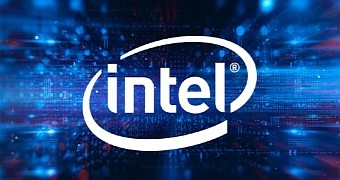There’s a lot going on in the Intel world these days, with the company today announcing an internal reorganization of its tech organization, but at the same time, also facing a class-action suit over possible securities fraud.
First and foremost, one of the biggest changes happening in the technology, systems architecture, and client group (TSCG) at Intel is the departure of Chief Engineering Officer and Group President of TSCG, Venkata Renduchintala.
While no reasons have been provided for this decision to leave the company, the announcement comes only a few days after Intel revealed that the release of 7nm processors has been delayed for six months, and many wonder if the two are in some way related.
The TSCG group will be divided into five different teams, namely Technology Development, led by Dr. Ann Kelleher, Manufacturing and Operations with Keyvan Esfarjani in charge of everything, Design Engineering with Josh Walden serving as the interim chief, Architecture, Software and Graphics under the supervision of Raja Koduri, and Dr. Randhir Thakur’s Supply Chain.
Securities fraud investigation
Meanwhile, Intel’s leadership team has another reason to worry about, as law firm Hagens Berman is looking into possible investors fraud after the recent delay of the 7nm processors.
The firm says Intel insisted that the new chips would begin shipping in 2021 on multiple occasions, and the company has guaranteed that “we’ve made time-to-market the priority.” Needless to say, all these promises, combined with claims of improved performance and efficiency of the new chips, increased the company’s share price.
But on the other hand, the July 23 announcement that confirmed a delay for the new processors caused a massive drop, and now the law firm wants to see whether “Intel misled investors about the 7nm schedule and related manufacturing issues," as Reed Kathrein, the Hagens Berman partner leading the investigation, explains.
The law firm is asking investors to reach out to the team in charge of the investigation, while also calling for whistleblowers to share any information they might have in exchange for up to 30 percent of any successful recovery made by the SEC.

 14 DAY TRIAL //
14 DAY TRIAL //